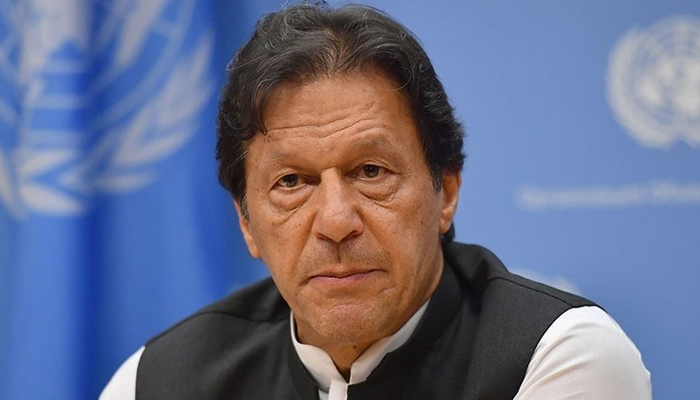Mr Prime Minister, where is the promised change?
As the 2023 election draws closer, people have one question: what is it that PM Khan will show as his govt’s achievements?
February 17, 2022

Last week, PM Imran Khan distributed ‘certificates of appreciation’ to the top 10 best-performing federal ministers. Before ‘honouring’ his ministers, the PM should have realised that even after the completion of almost four years of his five-year-long term, he is yet to fulfil the promises he made to the people to win the 2018 elections.
The ‘looted’ wealth of the country is yet to be brought back, young people are yet to get jobs, new houses are yet to be built, and a new province is yet to be established in Punjab. Almost all of his promises are yet to be fulfilled.
Of all his promises, making Pakistan corruption-free was one which tempted people to vote him into power. However, since he assumed power, the country has plunged into the new depths of corruption as it dropped 16 places in the Global Corruption Perception Index — from 124 to 140.
This is a big failure of his government. When he was in opposition, he used to make fiery speeches against the corruption of the previous governments, and had promised to make the country corruption-free.
He has not only failed to keep his promises but also gone one step further. Contrary to his promises of making institutions strong and independent, he has weakened and politicised them.
For instance, the National Accountability Bureau (NAB) is now seen as a tool used by the government to victimise opposition. Many past examples show how NAB apprehended leaders of the opposition parties but failed to produce tangible evidence against them.
The PM was ill-prepared to run the government and not ready to support the crumbling economy, contain soaring inflation, reduce the unemployment rate, and deal with numerous other issues.
Perhaps he did not know that criticising a government while being in opposition is easier than running the country at the helm. The opposition is always good at finding faults with government policies.
However, it is the government that is responsible for introducing new policies and steering the country out of crises — be it related to healthcare or the economy.
Before the 2018 elections, Imran Khan would point out the sharp disparity between the US dollar and the Pakistani rupee and say that a weak rupee was the indicator of the then government’s dismal performance. He used to claim that a surge in the value of the dollar was linked to the corruption of government representatives.
However, when the rupee started to lose its value during his tenure, he chose to remain silent about it. He seems unaware of the fact that the dollar is currently at an all-time high of Rs177. Can he tell the nation that his criticism of the previous governments on this ground was wrong? Or does he still think that changes in the value of foreign currencies are a result of corruption?
When it comes to his performance, he always comes up with excuses. Sometimes he says that he should not be blamed because he did not get ‘a good team’.
Whenever he is questioned about the country’s poor economic growth, he maintains that the previous government left the economy in shambles. When asked why incidents of sexual harassment and abuse are rising in a country which was supposed to be run on the model of Riyasat-e-Madina, he resorts to victim-blaming.
For every bad thing that happens right under his nose, he has an excuse to absolve himself of any responsibility.
Unfortunately, he has failed to live up to the nation’s expectations. When he came to power, it was hoped he would bring the much-wanted ‘change’ to the country.
But little did the people of Pakistan know that his claims of change were nothing but a smart tactic to gain more supporters. People are disappointed in him — they wanted results, not excuses. His tall claims and political rhetoric no longer inspire people.
As the 2023 elections draw closer, people have one question: what is it that Imran Khan will show as his government’s achievements? Has he got anything tangible which he can refer to when he launches his campaign for the next elections? He should think about this.
The writer is a freelance contributor. He can be reached at: [email protected]
Originally published in The News











